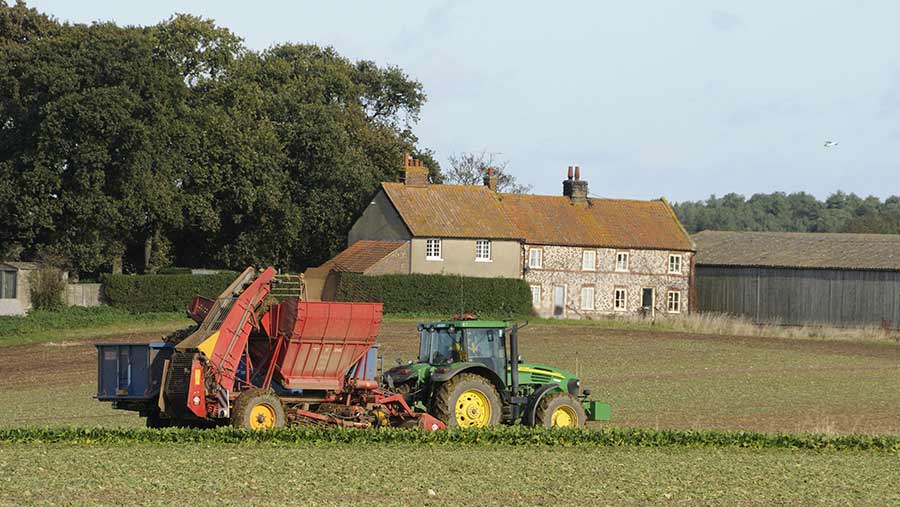Let buildings prove most profitable form of farm diversification
 ©Gary K Smith/FLPA/Image Broker/Rex Shutterstock
©Gary K Smith/FLPA/Image Broker/Rex Shutterstock Letting out buildings for non-agricultural use is the most common and most profitable form of diversification for farmers, according to official figures.
The latest results from the Farm Business Survey (FBS) for England show that the number of producers who have diversified in order to find an alternative income stream continues to increase.
The survey showed that 61% of all farm businesses had some form of diversified enterprise in 2014/15, up 3% from 2013/14 and about 10% higher than a decade ago.
See also: Check VAT rules on farm buildings used for storage
However, if the letting of buildings is excluded from the data then the number of farm businesses who have diversified falls to 41%.
Renewable energy was the second most popular form of alternative enterprise, showing how common solar panels and other green technology have become on British farms.
The survey showed that last year 18% of farms were generating some form of renewable energy, an increase of 5% from 2013/14.
Total income from the alternative enterprises on the farms covered by the survey was £530m and the average diversified farm income was £15,200.
There were wide variations between farms, but for 38% of businesses, income from the diversification accounted for at least a quarter of the total farm business income.
Average diversified enterprise income for a farm with let buildings was £16,100, while for a farm with a renewable energy project it was £3,900.
| Farm Business Survey 2014-15 – breakdown of diversified enterprises | ||
|
Type of diversification |
% of farms |
Average enterprise income (£/farm) |
|
Letting buildings for non-farming use |
41% |
16,100 |
|
Processing/retailing of farm produce |
10% |
6,400 |
|
Sport and recreation |
12% |
4,600 |
|
Tourist accommodation and catering |
5% |
7,700 |
|
Renewable energy |
18% |
3,900 |
|
Other diversified enterprises |
9% |
4,600 |
The definition of diversified activity used by the FBS excludes any contract work carried out by a farmer on another farm.
It is limited to non-agricultural work of an entrepreneurial nature on or off farm, but which uses farm resources.
